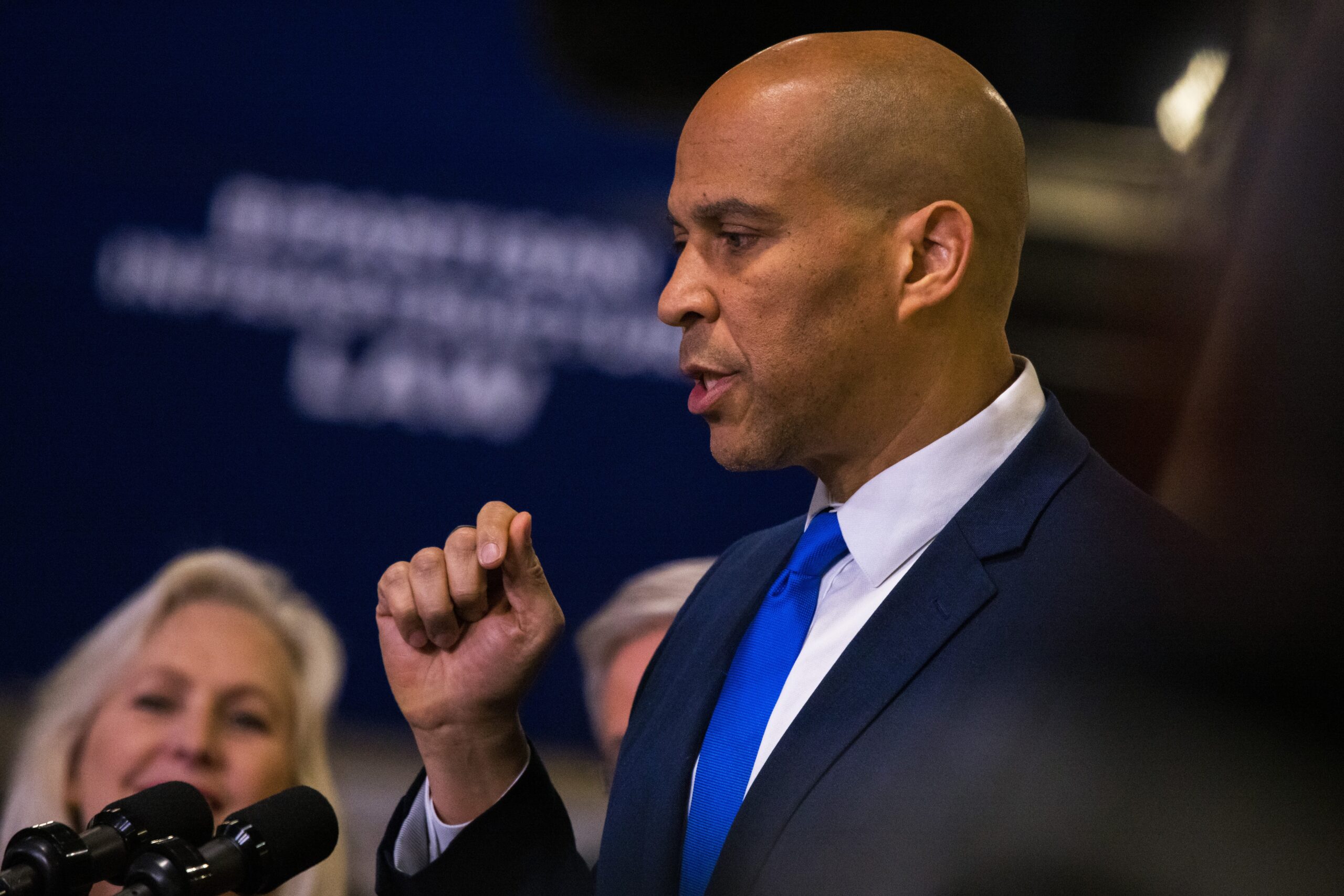In school, children are taught that the 13th Amendment abolished slavery in the United States. But that’s only half the story. The 13th Amendment bans slavery and involuntary servitude “except as a punishment for a crime.” That infamous loophole, which is the subject of Ava DuVernay’s film 13th, has allowed for the forced labor of millions of incarcerated people—a disproportionate number of whom are Black—throughout the United States.
Suggested Reading
But Senators Cory Booker (D-NJ) and Jeff Merkley (D-OR) and Congresswoman Nikema Williams (D-GA) have a plan to close that loophole. The three Democrats introduced the “Abolition Amendment,” which they said would close the “slavery loophole.” The joint resolution would amend the Constitution to say, “Neither slavery nor involuntary servitude may be imposed as a punishment for a crime.”
“This loophole is at odds with our nation’s foundational principles of liberty, justice, and equality for all our people,” said Senator Booker in a statement. “It is time we pass the Abolition Amendment and finally end the morally reprehensible practice of slavery in this country. We must ensure that all people are treated with fairness and dignity to truly live up to our nation’s promise.”
A report from the American Civil Liberties Union found that incarcerated workers generate $2 billion in goods and $9 billion in prison maintenance services. But on average, they are paid only 13 to 52 cents an hour, and many make nothing. In some cases, incarcerated people are forced to work dangerous jobs. For example, in California, they’ve been sent to the front lines to fight wildfires, but made significantly less than minimum wage.
This push to end the 13th Amendment loophole isn’t new. Seven states, including Alabama, Colorado, Nebraska, Oregon, Tennessee, Utah, and Vermont, have ratified the constitutional Amendment to get rid of the “slavery loophole.” And these three legislators have introduced the resolution in previous years, always coinciding with Juneteenth, the holiday celebrating freedom from enslavement.
Representative Williams, who replaced the late-civil rights icon, John Lewis, says she and her colleagues are committed to pushing this resolution until slavery is finally abolished.
“Slavery was wrong from day one, and we should have abolished it when the 13th Amendment was ratified,” said Congresswoman Williams in a statement. “I will keep pushing–no matter how long it takes– for Congress to close the Slavery Loophole in the Constitution, finally ending slavery in America once and for all. People in states across the country are making their voices heard by voting to abolish slavery. We’ve waited long enough. The time to pass the Abolition Amendment is now.”
Straight From 
Sign up for our free daily newsletter.



